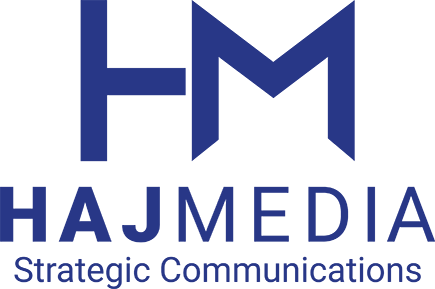Five Questions to Set Up Your Midsize Firm’s Media Relations Strategy
In a New York Law Journal commentary, Haj Media’s Juliet Di Frenza shares five questions midsize law firms should ask themselves when setting up their media relations strategy.
Five Questions to Set Up Your Midsize Firm’s Media Relations Strategy
Accessibility and responsiveness are vital not just when it comes to working with the press but also with people who pull together information for rankings and contests.
May 09, 2022 at 02:10 PM
So, you’re a medium-sized law firm and you’re finally ready to get some significant press attention or enter some of the many contests and rankings services (Chambers, etc.). Here are five questions to ask yourself as you develop a media plan to make your firm stand out.
1. What’s Your Story?
As a smaller firm, it would be wise to figure out if you have enough cases to position yourself as a thought leader for the industry. If you do not, figure out what makes you different. Maybe you are leading the way when it comes to creating a diverse and inclusive firm, something that has recently grown in importance for professionals. Or lean into a practice niche; a matrimonial law firm can really stand out for its knowledge of prenups. Find something that sets you apart and use it as the selling point for your firm.
2. Who Is Your Audience?
Are you looking for C-Suite professionals? Potential plaintiffs? Make sure you discuss this with your entire practice so everyone is on the same page. What results do you want from your media relations: New clients? New talent? Decide that and then seek out reporters and outlets that will get you in front of your audience. You’re most likely not aiming to pitch to fellow lawyers, so keep that in mind. For example, if you’ve had a couple of successful cases in Financial Technology, connect with a FinTech publication that will land you on the desk of decision-makers in that field.
3. Who Is the Voice of the Firm?
Although the seemingly obvious choice for your firm’s spokesperson is the managing partner, they have 1,000 things to do and devoting time to create content or having them connect with a media relations consultant may not be reasonable. Accessibility and responsiveness are vital not just when it comes to working with the press but also with people who pull together information for rankings and contests. Researchers at the rankings group, Benchmark, for example, emphasize the importance of providing them with accessible contacts who can offer time to respond thoughtfully. It’s also important to determine what kind of work your spokesperson wants to do to gain press attention, such as background conversations with reporters; drafting commentaries, or even filling out contest entries. Your goals should match your spokesperson. So, choose wisely.
4. Should You Use Social Media Platforms?
I’ll answer this question for you with a resounding yes. In the Digital Age, social media is one of the best tools to use when it comes to gaining attention from the public; ask any Kardashian. And just like that controversial family, you must be committed to supplying a steady stream of content to have any lasting presence on social media platforms. Task someone in your practice if you must and approach your posts and interactions in a methodical way to maximize your impact. You can also use Twitter when approaching reporters and techniques for pitching but that’s a whole other conversation. Regularly scheduled posts are key when establishing your firm online, so, use that TweetDeck!
5. Do-It-Yourself or Hire an Agency?
It’s completely possible for you to DIY media relations for your law firm, but much like renovating your kitchen, you should think about whether it’s really feasible. Doing it Yourself is a considerable investment of time, and if you go that route, it might still be worth hiring a consultant to help you with developing a strategic plan and media training for the firm’s leaders. But, be warned, they will still need you to devote some time to your media relations strategy, so you’ll still have to show up to those meetings and respond to reporters. Media relations consultants have existing relationships with the press, experience handling contests and, should you need it, crisis communications, all these things could help you move faster towards your media relations goals.
Regardless of the route you take, it’s important to be realistic about your results and recognize that you’ll need at least 3-6 months to see what works and what doesn’t. A great feature you worked on with a reporter might not run, yet the reasons for that are likely out of their control, so don’t direct any frustration towards them. But having one great story and then never being heard of again isn’t ideal anyway. Keep those expectations sensible and use a mix of contests, social media posts, and thought leadership commentaries. I’m sure you’ll find that coverage starts to accumulate, boost your reputation, and grow your clientele. Best of luck!




